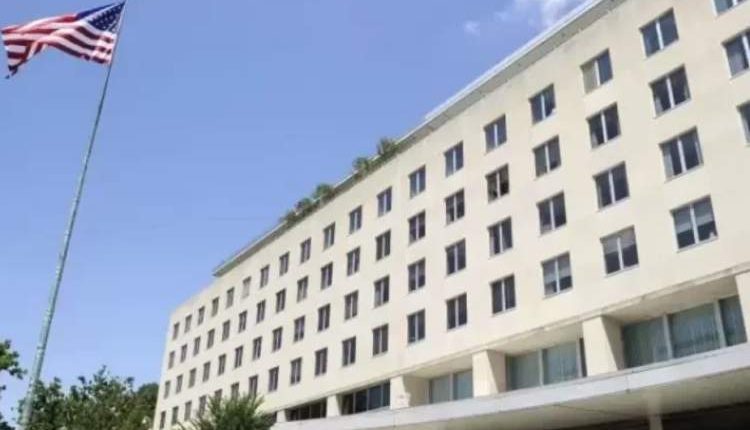U.S. Declares Yemen’s Houthis a ‘Foreign Terrorist Organization’
By Kardo Roj
WASHINGTON, United States (North Press) – The U.S. State Department announced on Tuesday that Yemen’s Houthi group has been re-designated as a Foreign Terrorist Organization (FTO), reversing a decision made under President Joe Biden in 2021. The move, authorized by an executive order signed by President Donald Trump, signals Washington’s increasing concerns over Houthi attacks in the Red Sea and broader threats to regional stability.
The State Department’s statement cited persistent attacks on civilian infrastructure, U.S. personnel, and commercial shipping as key factors behind the designation. It noted that “the Houthis’ activities threaten the security of American civilians and personnel in the Middle East, the safety of our closest regional partners, and the stability of global maritime trade.”
The decision marks a dramatic shift in U.S. policy. In 2021, the Biden administration removed the Houthis from the FTO list, arguing that the designation hindered humanitarian aid efforts in Yemen. However, growing security concerns, particularly hundreds of Houthi missile and drone attacks in the Red Sea and Gulf of Aden, prompted Trump to reinstate the classification under Executive Order 14175.
The statement further detailed that since 2023, the Houthis have launched sustained assaults on international shipping, targeting U.S. and allied vessels while deliberately avoiding Chinese-flagged ships—a strategic move that has raised suspicions of external backing.
U.S. officials have repeatedly warned that Houthi aggression threatens one of the world’s most vital maritime routes, potentially disrupting the flow of oil and goods through the Red Sea. The Bab el-Mandeb Strait, a narrow chokepoint between Yemen and the Horn of Africa, handles nearly 12% of global trade.
The FTO designation carries severe legal and financial consequences, including asset freezes, travel bans, and criminal penalties for entities or individuals providing material support to the Houthis. The move is expected to increase pressure on Iran, which the U.S. has accused of supplying weapons and intelligence to the Houthis.
In response, the Houthis rejected the designation, calling it a “political maneuver” aimed at justifying U.S. military operations in the region. A senior Houthi official stated that the group “will continue to defend Yemen’s sovereignty”, emphasizing that “American threats will not deter the resistance.”
The group has also vowed to continue its military operations against what it considers hostile forces, particularly U.S. and Israeli-linked vessels operating near Yemen’s coastline.
The designation has received support from regional allies such as Saudi Arabia and the United Arab Emirates, both of which have been targets of past Houthi missile strikes. However, humanitarian organizations have expressed concerns that sanctions could complicate aid deliveries to Yemen, a country already suffering from one of the world’s worst humanitarian crises.
With tensions escalating, the international community is closely watching whether the Houthis will respond with further attacks—or whether diplomatic efforts can contain the crisis before it spirals into a larger regional conflict.

